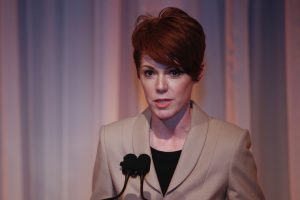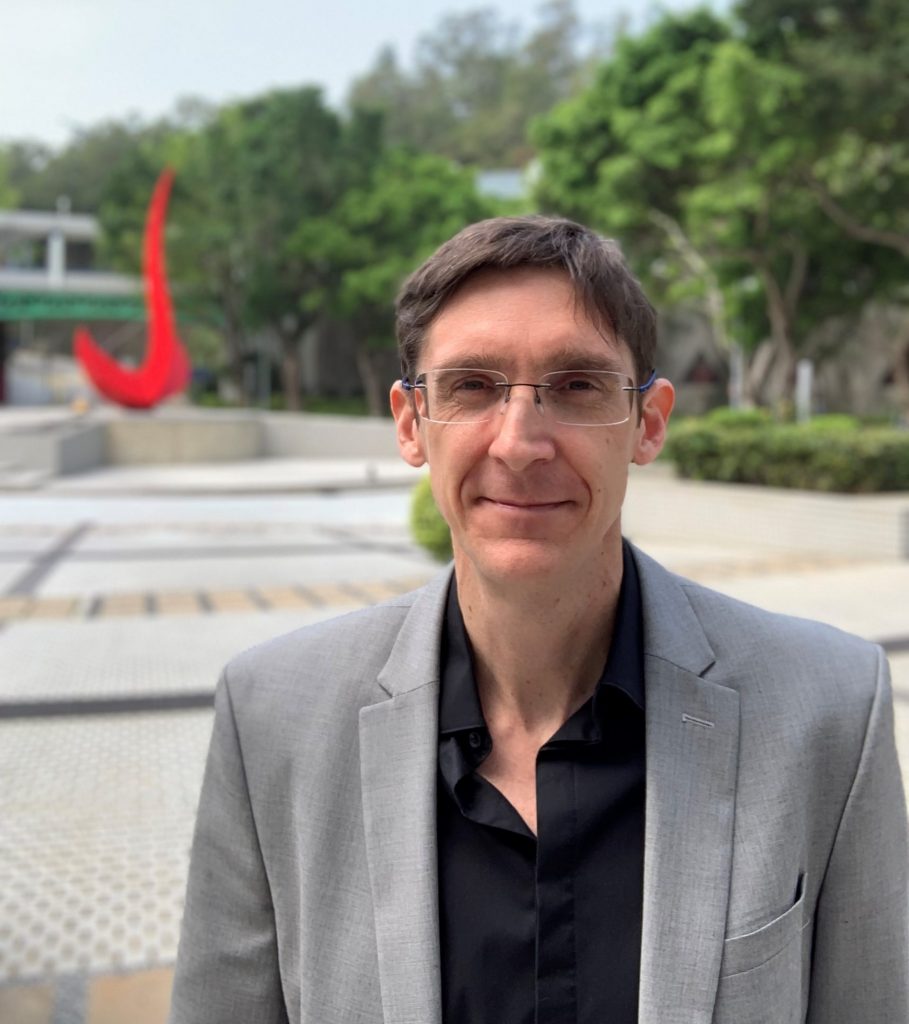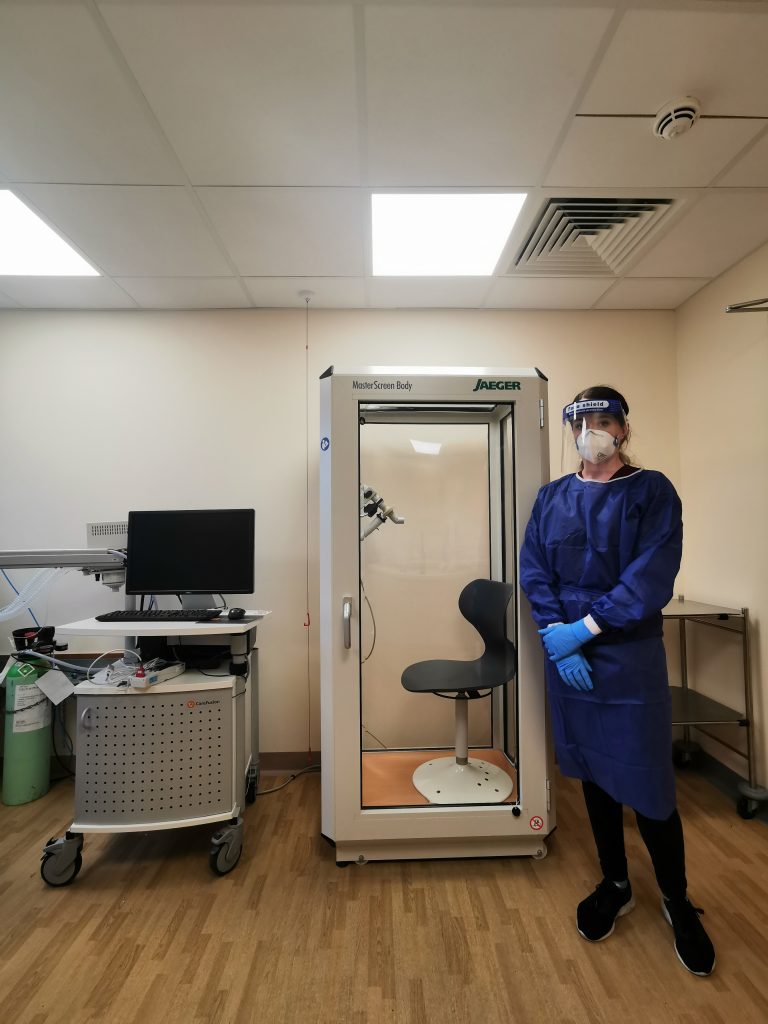By Nina Hendy
Australians have been leading the charge to save lives, roll out vaccines and ultimately, bring an end to the pandemic in countries ravaged by Covid-19 around the world.
An Australian has found herself in charge of distributing medical oxygen amid a global pandemic, based in New York.
“It’s like one of those dreams where you’re running breathlessly, but you feel like you’re getting nowhere”, Leith Greenslade says.
As the coordinator of a global coalition of more than 50 organisations clambering to help countries get their hands on limited supplies of medical oxygen, it can feel like the weight of the world is on her shoulders.

When she’s not frantically sourcing and arranging urgent transport of hopelessly limited oxygen supplies, she’s working out how to fix broken oxygen equipment lying idle in some of our poorer countries.
But being in charge of the Every Breath Counts Coalition is where she’s meant to be. It’s a role that has exposed her to suffering, death and much heartache as Covid-19 spreads like wildfire around the world. It’s been a role that has required her undivided attention for every waking breath seven days a week since the pandemic began.
Getting oxygen to so many countries simultaneously when the need is so great was always going to be a losing battle. But she’s got to try. She fears that Covid deaths could be 10 times higher than the 4.55 million being reported, she says.
The cries for help keep her working around the clock. Like the social media post from Covid-ravaged Myanmar which read “We can’t breathe … and the whole world is silent,” which strikes her in the heart.
“On a good day, we know we’re making a difference. On a bad day – and there are many – we wake up to doctors pleading for oxygen for their patients, to families taking to social media in a desperate quest to find oxygen cylinders, and to healthcare workers who have lost their lives because there was no oxygen to treat them when they became infected,” she explains.
“How many of these deaths are because of lack of oxygen? We don’t know, but I would estimate a sizeable proportion, especially in countries like India, Brazil, Indonesia, Colombia, South Africa, Bangladesh and many more where the hospitals still don’t have enough oxygen to treat Covid patients.”
But Greenslade is adamant. She’s staying put in New York and fighting on. Despite admitting it’s not been easy to simultaneously raise three teen daughters alone in a city where case numbers spiked to 14,000 a day in January this year. “It’s my personal mission to make sure that the Every Breath Counts Coalition is never silent, and keeps agitating for action on oxygen until the pandemic is over everywhere.”
Staying to fight
Greenslade is by no means alone. It’s estimated four per cent of the Australian population live and work abroad – our diaspora. That equals around one million people choosing to spread their wings and base themselves overseas. This figure would be even higher if former residents, such as international students, were included.
At the start of the pandemic, the Federal Government urged Australians living and working around the world to come home. Half of Australian expats heeded this advice, with 480,000 back in the country by late March, 2021.
But coming home was never an option for many Australians, who found themselves on the frontline of a global battlefield, thousands of kilometres from their birthplace. And as research shows by Advance.org, the organisation representing overseas Australians, nearly half of those living overseas have been away for more than a decade, while a fifth have settled permanently in another country.
CEO Johanna Pitman says: “They couldn’t possibly pull themselves away from their work, their kids’ schools, and their established life in another country. It’s just as well. For many of our nation’s proudest exports, their work is of international importance and put simply, their actions have saved lives.”
Vaccinology and Paediatrics Professor Matthew Snape has watched on as Covid-19 has gripped the UK, and never considered coming home. “Being in the right place at the right time to be involved in a historically important research project is not a chance I could have passed up,” he says.
Based in London, Professor Snape is the chief investigator on the study evaluating rates of Covid-19 infection in children. He’s an integral part of the Oxford Vaccine Group, with years invested in studying new vaccines against diseases such as childhood meningitis, swine flu and ebola. Then Covid hit, and topped everything.
Knowing that he was well placed to take on this challenge came with a massive sense of responsibility. “There has definitely been a sense that the previous work has been instrumental to us building a team and developing systems that could then deliver a whole series of these vaccine studies at speed,” he says.
He’s been leading the study into Covid-19 infection rates in children in the UK and around the world, which will be crucial to understanding why children are so much less likely to become unwell from the disease. His work has also led to agreed strategies for vaccine roll-out.
Over in Hong Kong, Professor Matthew McKay started working on Covid-19 vaccines almost immediately after the first genetic sequencing was made publicly available. By January 2020, his team had already published one of the first research papers on Covid-19 vaccines in the world.

Based at the Hong Kong University of Science and Technology, his team has worked tirelessly to help fight the pandemic.
From investigating the development of novel diagnostic methods and next-generation vaccines, to developing approaches for monitoring and comparing immune responses induced by different vaccines, he’s literally at the coalface of critical vaccine research.
“While it seems like a lifetime ago now, at the time, almost nothing was known about Covid-19, other than it was a new coronavirus that had never been seen before.”
Professor McKay’s work has influenced the development of multiple Covid-19 vaccines, which have been used by labs around the world to guide experiments that study immune responses in humans.
The company behind one of the Covid-19 vaccines to hit the market, Vaxxinity, indicated that McKay’s work helped it select components of their vaccine to trigger the T-cell immune response.
Vaxxinity signed a purchase order for one million doses of Covid-19 vaccine with the government of Paraguay; a country suffering one of the worst Covid-19 outbreaks per capita in the world.
Professor McKay is also working with Covid-19 patients who have recovered from the disease to better understand the long-term ramifications of a diagnosis. “Our research used data from 18 experimental studies, including four conducted in Australia. One of our findings was that the T-cell responses in the tested individuals were very broad, recognising many parts of the SARS-CoV-2 virus.
“We have also been assessing the resilience of natural or vaccine-induced immune responses to emerging variants of the disease.”
In Portsmouth, England, respiratory physiologist Kellie Strickland is testing the lung function of recovered Covid-19 patients to determine the long-term impact of the virus. She was determined to stay and see the pandemic through.
Her entire working day is spent in level 3 personal protective equipment (PPE) assessing post-Covid patients with ongoing shortness of breath, some who have been left with scarring on the lungs. “Whether this is permanent or not, we don’t know, and we are contributing to the evidence base daily.”
Coming home was never an option for her. When the pandemic began, she knew instantly that she was in the right place at the right time. “I have an amazing respiratory team that I did not want to abandon,” she says.

“I’m glad I decided to stay; to have watched the UK go from being plagued by Covid and lockdowns to now returning to a new normal, with the opportunity to continue exploring this country, has been a privilege,” Strickland says.
Early childhood educator and author Cara Zelas was in New York. “There is a grit and a level of hustle unique to New York, and being there energised and turbo-charged my career.” When the pandemic hit, she thought first of the pre-schoolers stuck in lockdown, with pent-up energy and an alarming absence of stimulation.
Overnight, families were thrust into the role of at-home teacher, now having to home-school children using remote platforms like Zoom. “Virtual classrooms work for older children, but aren’t as effective for young, developing, pre-school age children,” she says.
So, she created the Big World of Little Dude – a school-in-a-box of at-home lessons with guided instructions for stressed out parents, which are snapped up by tens of thousands of families in countries around the world each week.
There are countless others, of course.
Hamish Nairn, based in San Francisco, who was one of the lead architects of the US Administration’s emergency response to Covid.
Digital transformation consultant Jacqueline Lauren, who created Meals for Medics in London, on top of her busy day job.
Dr William Ng, a cardiothoracic anaesthesiologist, who has led multi-institutional collaborations across four universities in a spring project to upscale reusable 3D printed N95 face masks for frontline workers.
Collectively, these and many other incredible Australians highlight the disparate and yet life-saving roles that our nation has played globally during the pandemic.
Loved ones lost
Incredibly, despite the close proximity of the disease, none of those interviewed have fallen victim to Covid-19. But they’ve witnessed mass suffering around them, some losing colleagues and loved ones to the disease.
Strickland, who is of course vaccinated, reveals that at least half of her co-workers contracted Covid-19, and thankfully recovered. “My roommate also contracted the disease during the first wave, which was fun to try and avoid with the limited information we had on the virus at the time.”
Greenslade says many of her friends and colleagues have contracted Covid, particularly healthcare workers on every continent.
Similarly, many of Snape’s friends and colleagues have also fallen victim to the disease, particularly those working in the medical field.
“Seeing it’s terribly profound effects first hand brought home how important it is to continue to do everything we can to prevent this illness while continuing to live our lives. For now, that means getting as many people immunised as possible.”
Still call Australia home
Meanwhile, in a significant win for Australia, Professor McKay will bring home his global experience at the end of this year.
He has accepted a position with the University of Melbourne as an Honorary Professional Fellow within the Department of Microbiology and Immunology. Here, he will work with three other scientists who have also made extraordinary contributions to the pandemic, and continue to fight the pandemic from Australian soil. As long as it takes, he vows.
A family emergency bought Zelas home last year, and she’s settled in regional NSW, where she’s continuing to expand remotely, by creating new content, developing follow-on book series, and licensing curricula to schools.
But whether other talented Australians will also come home once the borders open will ultimately come down to how the career opportunities in Australia stack up against the possibilities overseas. And surveys have shown that those returning home can face a tough time getting their overseas experience recognised and valued. Hopefully these impact-makers will be welcomed and given more than an elbow bump at the arrivals gate.